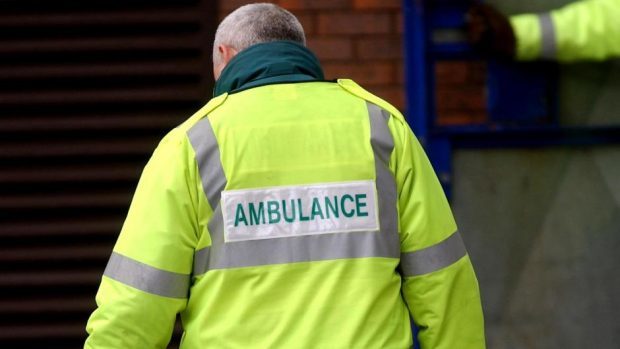Paramedics are to be asked to help ease the “huge pressures” on family doctors in Scotland by basing them at local GP surgeries.
The project aims to improve access to care and treatment, cut waiting times and increase the amount of care provided at home.
It is now being expanded under new laws which allow advanced paramedics to prescribe medicine to people who do not need a hospital appointment.
And the move follows successful trials in several GP practices across the country, with 30 paramedics with additional training and qualifications taking part.
Dr Jim Ward, medical director of the Scottish Ambulance Service, said the initiative was proving a success and had the potential to be rolled out further to meet increasing demands for urgent care.
“GP practices across the whole of Scotland are facing huge pressures; one of these is responding to patients who become unexpectedly unwell and who need to be assessed in addition to all the patients who already have appointments,” he said.
“Paramedics are specialised in assessing all types of emergency and urgent presentations and transferring this skillset into primary care has seen a real benefit in supporting GPs and others in the primary healthcare team.
“This project helps patients to access the help they need sooner, and often in the familiar setting of their own homes.”
He added: “Our paramedics are highly skilled and this initiative enables the wider health and care system to utilise their knowledge and experience to better benefit the communities they serve.
“Importantly it frees up a lot of time for GPs, meaning they can direct their focus where it’s most needed – on more complex cases.
“In addition, enhancing paramedics’ skills will enable them to work more autonomously and offer a wider range of treatments.
“Not only will this improve the care patients receive but it will potentially reduce the number of avoidable attendances at hospital emergency departments.”
Lauren O’Connor is one of four paramedics who have been working out of Greenock’s Regent Practice and Gourock Medical Practice, for the last nine months.
She said: “Most of my work involves visiting patients – many of whom are housebound in their own homes – and helping to treat acute illness such as chest infections, COPD or urinary tract infections.
“Patients are often seen sooner by a paramedic and it means GPs have more time to dedicate to patients needing more complex care,” she said.
